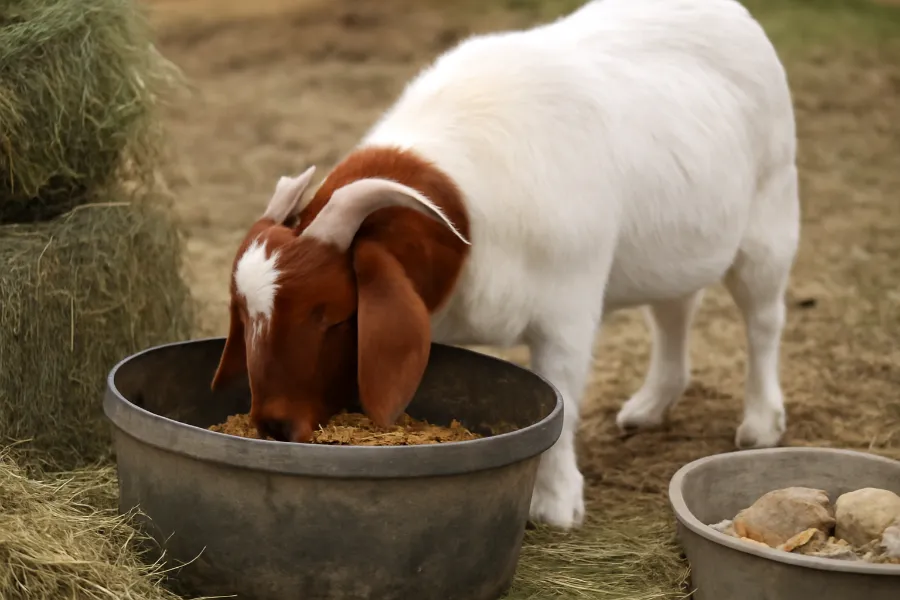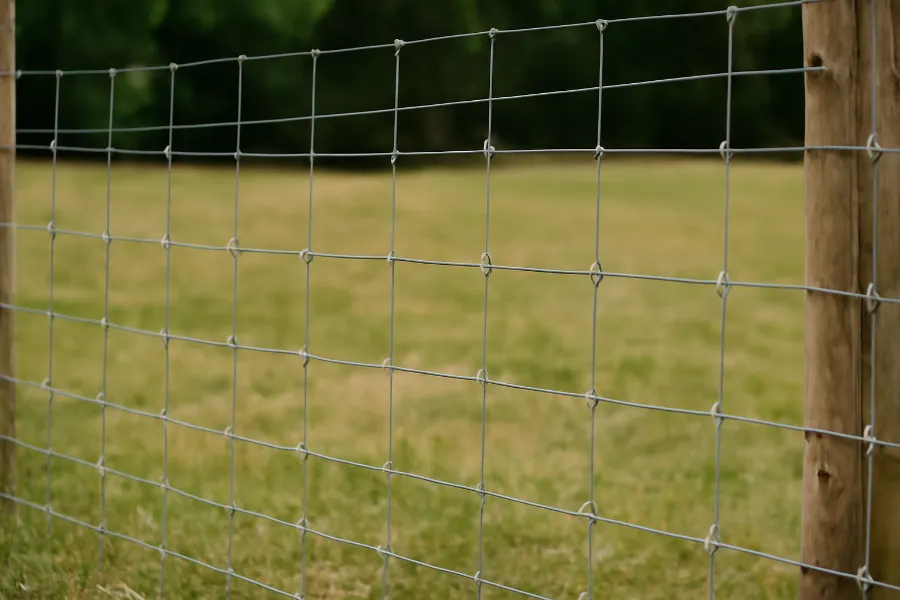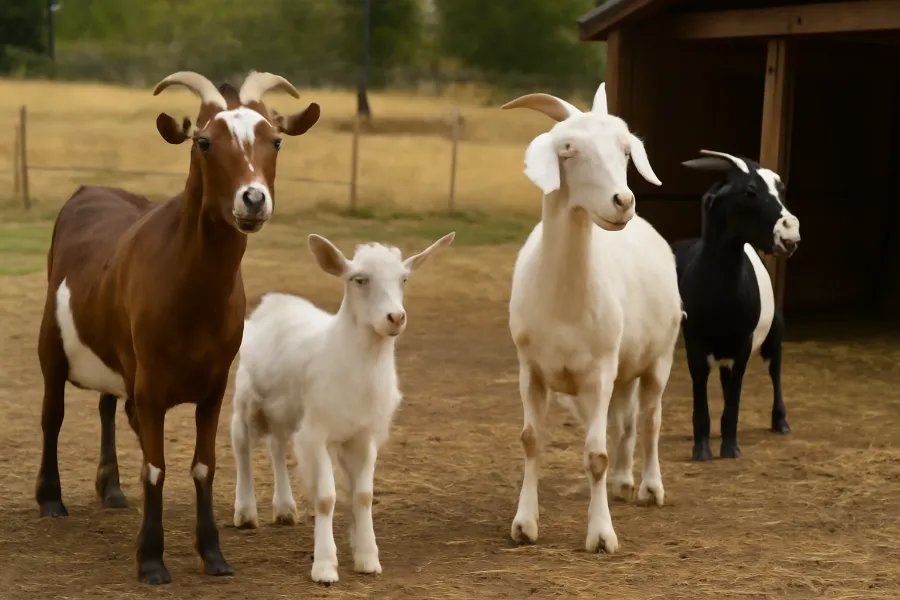If you’re new to the world of goats, you’ve probably heard a lot of myths. From tales of goats eating anything in sight to misconceptions about their care needs, it can be overwhelming. As someone who’s been raising goats for years, I’m here to set the record straight and share what I’ve learned along the way.
Goats are intelligent, social creatures with unique needs that, if not properly addressed, can lead to frustration and misconceptions. Whether you’re considering raising goats for milk, meat, or just as pets, understanding the truth behind these myths is essential to providing the best care possible. In this blog post, I’ll debunk some of the most common goat myths and offer practical advice on how to care for them effectively.
Raising Goats: They’re Not as Easy as They Seem
One of the biggest myths is that goats are low-maintenance animals. While they are hardy and adaptable, they still require proper care and attention. Goats need regular feeding, clean water, and a safe environment to thrive. Neglecting their needs can lead to health issues and behavioral problems.
The Reality of Raising Goats

Goats are not like other livestock that can be left alone for long periods. They require daily care, including feeding, grooming, and health checks. Goats need access to fresh water at all times and should be fed a balanced diet. Their health needs are specific, and you’ll need to stay on top of things like hoof trimming, vaccinations, and deworming to keep them healthy.
Additionally, goats are social animals. They thrive in herds and do better when they have companions. It’s not a good idea to keep a goat by itself for long periods. They can become lonely and anxious without another goat for company.
Takeaway: Raising goats requires commitment and regular attention. They’re not “low-maintenance” animals, and owners need to stay consistent with their care routines.
Goat Fencing: Not All Fences Are Created Equal
Goats are notorious escape artists. A flimsy fence won’t keep them contained. I’ve learned this the hard way. Invest in strong, tall fencing—at least 4 feet high—and ensure there are no gaps they can squeeze through. Woven wire or electric fencing works best to keep your goats safe and secure.
Why Goats Need Strong Fencing

Goats are curious creatures that love to explore, and they can figure out ways to escape almost any enclosure. Whether it’s jumping over a low fence or slipping through small gaps, goats are experts at getting out. This is why a standard cattle fence or even a typical horse fence isn’t sufficient for keeping goats contained.
Woven wire fences with small gaps (no larger than 4 inches) are usually the best choice. This type of fencing prevents goats from squeezing through while also being durable enough to withstand their constant rubbing and pushing. Electric fencing can also be a helpful addition, especially when used alongside traditional fencing. Goats quickly learn to respect the shock from the electric fence, making it an effective deterrent.
Takeaway: Goats need strong and secure fencing. Make sure to invest in a durable system that can withstand their curious nature.
Goat Shelter: More Than Just a Roof Over Their Heads
Some believe goats can live without shelter, but that’s far from the truth. Goats need protection from extreme weather conditions. A simple three-sided shed can provide them with the necessary shelter. Ensure it’s well-ventilated and dry to prevent health issues like pneumonia or hoof rot.
Why Goats Need Shelter
While goats are resilient and can handle cold weather better than many other animals, they still need shelter to protect them from harsh environmental conditions. During the winter months, they need a dry place to get out of the rain, snow, and wind. In the summer, they need shade and a cool place to retreat from the heat.
The best shelter for goats is a simple, three-sided structure that offers ventilation but is closed off on at least one side to protect them from the wind and rain. It’s important that the shelter stays dry and clean to prevent diseases and hoof issues.
Takeaway: Goats need shelter to stay comfortable and healthy, especially during extreme weather conditions.
Goat Food: They’re Not Garbage Disposals
The myth that goats will eat anything is misleading. While they’re curious and will nibble on various plants, they won’t consume harmful substances unless they’re starving. Provide them with high-quality hay, fresh water, and occasional treats like fruits and vegetables. Avoid feeding them toxic plants like azaleas or rhubarb.
What Goats Should Really Eat
Goats are ruminants, which means they have a complex digestive system designed to process a variety of foods. Their primary diet should consist of good-quality hay (grass or alfalfa), fresh water, and occasionally grains or treats. A balanced diet is key to keeping your goats healthy and productive.
While goats will eat a variety of plants, they’re not necessarily looking to eat garbage. They may nibble on things like tree bark or the occasional piece of clothing if they are bored or lacking in nutrition, but they should not be given these things on a regular basis. It’s important to avoid feeding them toxic plants and ensure they have access to the right nutrition.
Goats also need access to free-choice minerals that can help them get all the nutrients they need. Some goats will also benefit from grain, especially lactating does or young goats that are growing rapidly.
Takeaway: Goats are selective eaters and should be given a balanced diet that includes hay, fresh water, and occasional grains. Avoid feeding them toxic plants or scraps.

Goat Deworming: Not All Dewormers Are Equal
Deworming is essential for goat health, but not all dewormers are effective against all parasites. It’s important to rotate dewormers and consult with a veterinarian to develop a deworming schedule tailored to your goats’ needs. Overuse of a single dewormer can lead to resistance.
The Importance of Deworming
Goats are susceptible to internal parasites, including roundworms and coccidia, which can negatively affect their health. If left untreated, parasites can cause weight loss, lethargy, and even death in severe cases. Regular deworming is crucial to keeping your goats healthy.
There are various deworming medications available, such as Ivermectin, Albendazole, and Fenbendazole. It’s important to rotate dewormers to prevent resistance and ensure they remain effective. Additionally, you can monitor your goats’ health through fecal testing to check for parasite loads and adjust your deworming schedule accordingly.
Takeaway: Regular deworming is essential for goat health. Consult a veterinarian and rotate dewormers to ensure effectiveness.
Best Goat Feed: Quality Matters
Not all goat feeds are created equal. It’s tempting to buy the cheapest option, but quality matters. Look for feeds formulated specifically for goats, with appropriate levels of protein and fiber. Supplement their diet with free-choice minerals to ensure they receive all the nutrients they need.
Choosing the Best Goat Feed
When choosing feed for your goats, it’s essential to look for a brand that’s specifically designed for goats. Goat feed should have a balanced mix of protein, fiber, and nutrients. Alfalfa hay is great for young goats and lactating does, but adult goats generally do better on grass hay to avoid weight gain.
In addition to hay and grains, goats should also be given free-choice minerals to support their health. These minerals should include calcium, phosphorus, and salt. Goats require a variety of nutrients to stay healthy, and high-quality feed is an essential part of their diet.
Takeaway: The best goat feed is one that’s specially formulated for goats and includes the necessary nutrients like protein and fiber. Don’t skimp on feed quality—it’s an investment in your goats’ health.
Final Thoughts
Raising goats is a rewarding experience, but it’s essential to separate fact from fiction. By debunking these common myths about goats, I hope to provide a clearer understanding of what it truly takes to care for these amazing animals. Whether you’re raising goats for milk, meat, or companionship, proper care, feeding, shelter, and fencing are key to a successful experience.
If you’re considering adding goats to your farm or homestead, take the time to learn about their needs and behaviors. It may take a little effort upfront, but with the right care and knowledge, you’ll enjoy the many rewards that goats bring.













